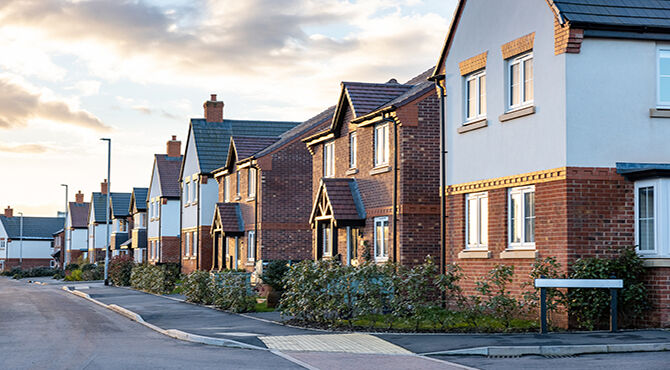Finally, signs of a slowdown in home prices
Annual house price growth in the UK remained in double digits in April but, after a year of rocketing prices, there were signs the market might be beginning to cool.

 29 April 2022
29 April 2022Nationwide Building Society's index for April recorded a month-on-month climb of 0.3%, pushing the average amount paid for a home in the UK to £267,620 - 12.1% higher than it was a year earlier.
Rise in rates continue with a slowing down in sight
However, the monthly rate rise was considerably lower than the 1.1% recorded in March, when the annual rate stood at 14.3%.Much of the rise over the past year has been caused by a shortage of properties coming on to the market at a time when, because of the Covid-19 pandemic, large numbers of city dwellers were seeking bigger, rural properties with generous gardens.
Robert Gardner, Nationwide's chief economist, said: "Housing market activity has remained solid with mortgage approvals continuing to run above pre-Covid levels.
"Demand is being supported by robust labour market conditions, where employment growth has remained strong and the unemployment rate has fallen back to pre-pandemic lows. With the stock of homes on the market still low, this has translated into continued upward pressure on house prices.
"Nevertheless, it is surprising that conditions have remained so buoyant, given mounting pressure on household budgets which has severely dented consumer confidence."
Housing to become more affordable in the future
Gabriella Dickens, senior UK economist at Pantheon Macroeconomics, described the slowdown in price growth as unsurprising, given the effect of inflation on real incomes and rising mortgage rates. "We think that house price growth will continue to slow from here," she said.Myron Jobson, senior personal finance analyst at Interactive Investor, said the property market had remained "stubbornly hot" but added: “Mortgage affordability is a growing concern.
"The window for cheap mortgages is closing rapidly and the spectre of higher interest rates means that mortgage rates are likely to return to levels we haven’t seen in a while. The property market remains tough for homebuyers and is set to get tougher from an affordability perspective.”
Martin Beck, chief economic adviser to the EY ITEM Club, agreed. "A slower rate of house price growth could be a taste of things to come," he commented.
"The squeeze on real incomes from high inflation means fewer people will be able to afford to borrow the necessary amount they need to buy at higher mortgage rates."
However, he added: "Just as during the pandemic, the housing market is likely to prove relatively immune to economic challenges. So while a period of relatively sluggish price growth is likely, the EY ITEM Club thinks any serious correction in property values is unlikely."
According to Nationwide figures, the average price of a UK home has risen by almost £50,000 since the arrival of the coronavirus pandemic in March 2020.
Related articles:
Read more news and views from David Sapsted in the Spring 2022 issue of Think Global People.
Join us at the Future of Work Festival on 9 June to explore these topics further and be part of a unique experience driving innovation and collaboration for growth. Book tickets here.
Subscribe to Relocate Extra, our monthly newsletter, to get all the latest international assignments and global mobility news.Relocate’s new Global Mobility Toolkit provides free information, practical advice and support for HR, global mobility managers and global teams operating overseas.
 Access hundreds of global services and suppliers in our Online Directory
Access hundreds of global services and suppliers in our Online Directory ©2026 Re:locate magazine, published by Profile Locations, Spray Hill, Hastings Road, Lamberhurst, Kent TN3 8JB. All rights reserved. This publication (or any part thereof) may not be reproduced in any form without the prior written permission of Profile Locations. Profile Locations accepts no liability for the accuracy of the contents or any opinions expressed herein.




































